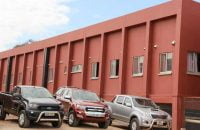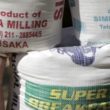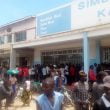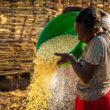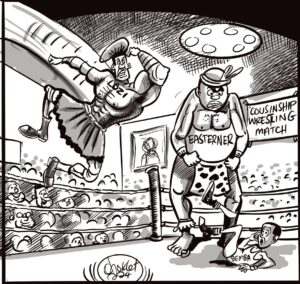he Jesuit Center for Theological Reflection (JCTR) has recorded an increase in the cost of basic needs in Lusaka for the month of March.
In a statement, JCTR Social and Economic Development Officer Paul Chileshe said mealie meal prices increased by K14 from K86 in February, to K100 in March due to reduced Maize stocks and the lifting of the Maize export ban by government.
“Zambia has been encountering adverse effects of changing weather patterns that have comprised of dry seasons, increased temperatures and flash floods. This has threatened food security in the country and is resulting in hunger and increased price of key foods like maize. Shortage of rainfall may also affect the generation of electricity in the country as the country largely relies on hydropower generation which depends on rains. JCTR has always cautioned government on the need to diversify the agriculture sector, as this may stabilise domestic prices of essential food commodities and produce sufficient food for the whole year even in the face of changing climatic conditions. However, the government has been slow to actualise diversification and this has had perennial negative effects on prices of basic household essentials,” Chileshe said.
“The JCTR Basic Needs Basket for the month of March for a family of five in Lusaka increased to K5,543, from K5,331 in February 2019, an increase of K212. The most significant increases were recorded in the price of charcoal which increased by K27, from K132 in February to K159 in March per 90kg. Mealie meal increased by K14, from K86 in February to K100 in March for a 25 kg bag. Dark green vegetables increased by K5, from K8 in February to K13 in March. Sugar increased by K1.5, from K25.5 in February to K27 in March per 2kg. Some reductions were however recorded in the price of fish which reduced by K13.5 from K140 in February to K126.5 in March per Kg. Tea reduced by K25.5, from K96 in February to K70.5 in March per Kg.”
Chileshe said the lifting of the ban on maize export was done abruptly and without careful considerations of its impact on the cost of mealie meal locally.
“The increase in the price of mealie meal was due to the scarcity of maize on the market. Two factors accounted for this scarcity. These are the reduced maize stocks at this time of year and the lifting of the mealie meal export ban. It was observed that the lifting of the ban was done abruptly and without careful considerations of its impact on the cost of mealie meal locally. JCTR warned that the move was going to affect mealie meal prices as it has always been the case that government’s interference in the maize market when ill-timed tends to have negative repercussions. We are happy to note that the government has now reversed its position on the export ban. The increase in the price of charcoal is attributed to high transport costs that are being incurred when transporting charcoal. While the reduction in the price of fish is attributed to increased supply of the commodity on the market.” Chileshe said.
He said the increase in the cost of basic needs will make poor families to become poorer.
“JCTR notes that the cost of food items on the market has remained high and continues to steadily increase making it unaffordable for many households. The BNB shows that the cost of food items increased to K1,657.15 in March, from K1, 495.86 in February. The huge rise in the cost of food commodities means families that still rely on fixed sources of income will have to forgo some of their basic needs which affects their quality of life negatively making the already poor households even poorer,” Chileshe said.
“In light of these effects, JCTR urges the government to promote agriculture diversification other than concentrating on maize production. Maize is a political crop and too much reliance on it is affecting the countries food security negatively especially during this time of harsh climatic conditions which do not guarantee a good maize harvest. The addition of new crops or cropping systems to agricultural production is a sustainable solution to food security and an addition to the farmer’s income. Therefore, government needs to work with farmers and the private sector to promote crop diversification.”




